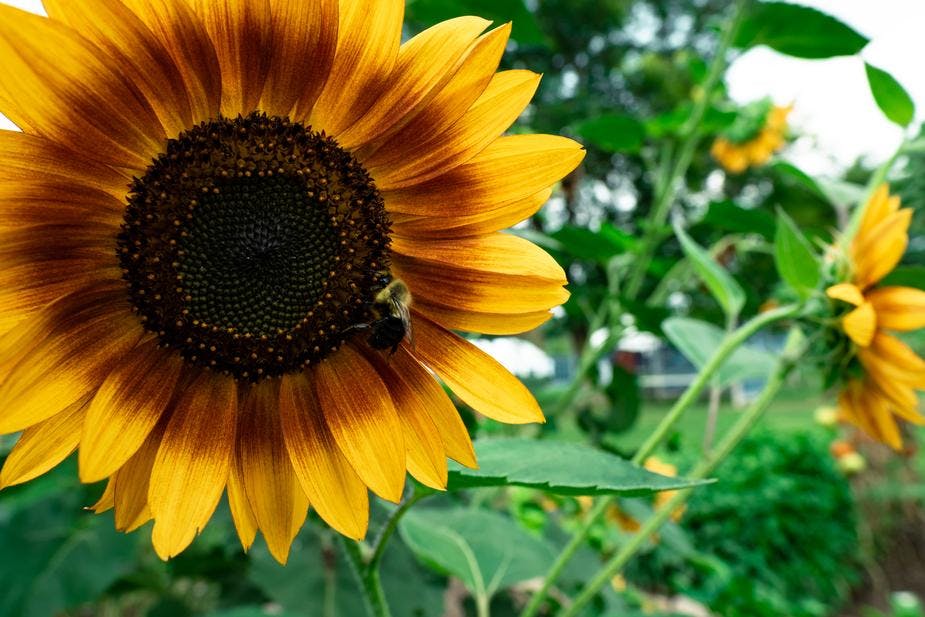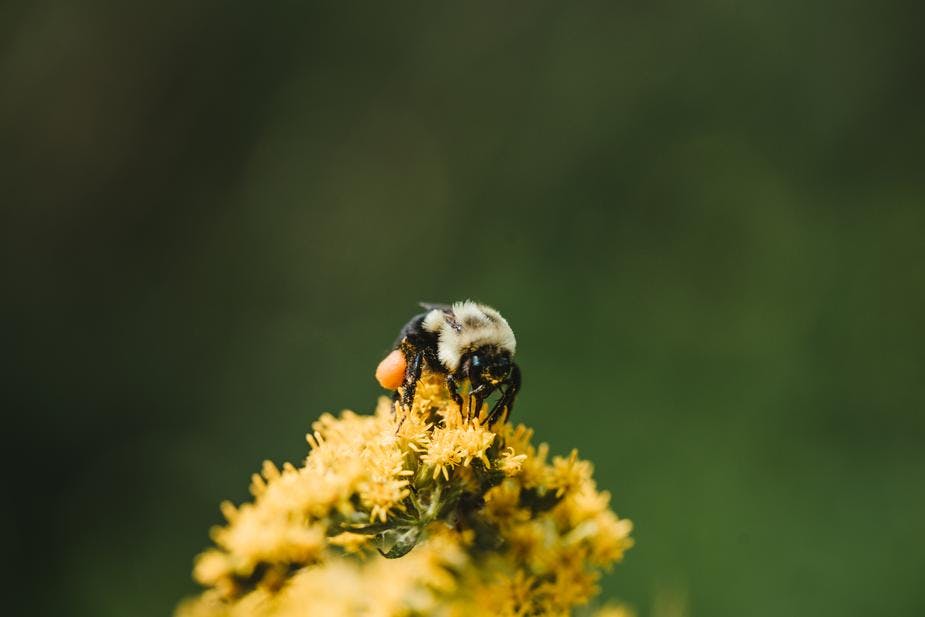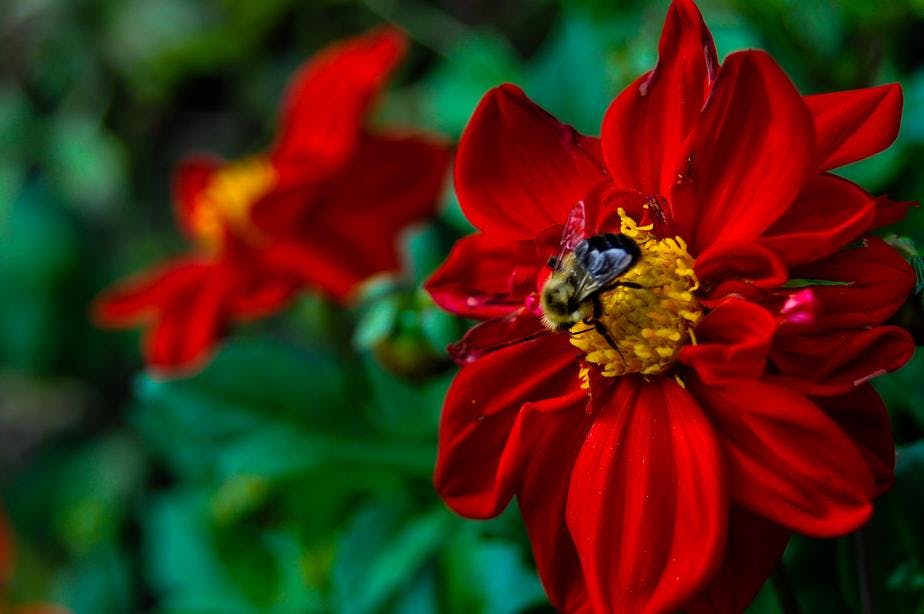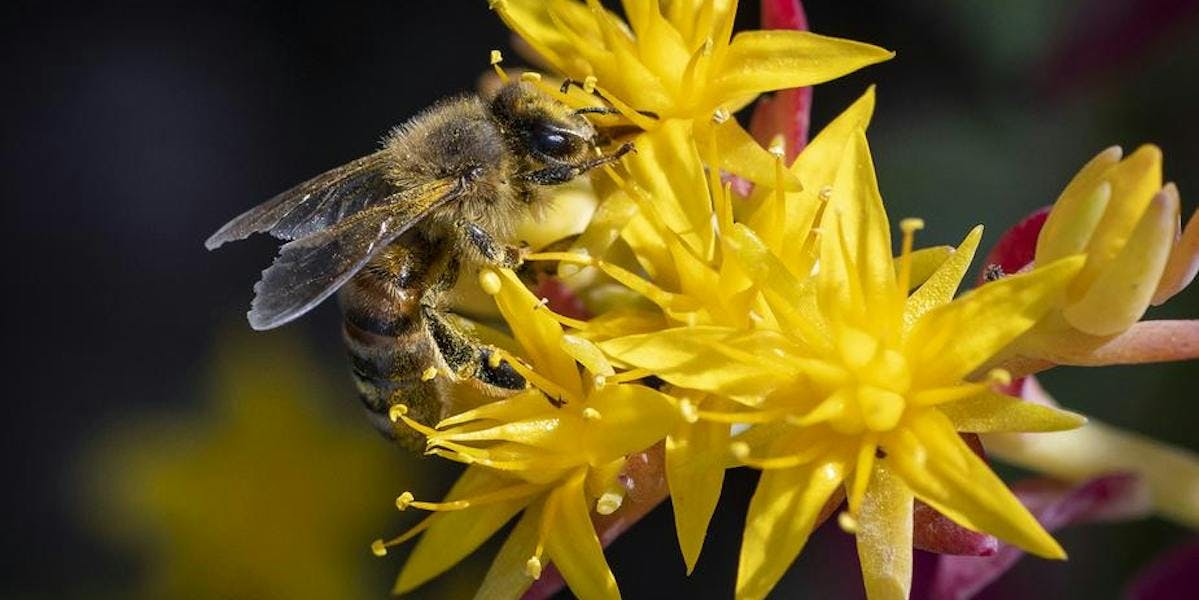Lifestyle
Why Do We Need Bees?
by Laura Barns
3min read
Bees are largely known for the fact that they provide humans with honey, but when you dig a little deeper, you’ll soon learn that they have way more to offer the world than that. (And if you’re wondering why most vegans avoid consuming honey, take a look at this article around is honey vegan).
Sure, we’d be able to survive without bees, but without these buzzing little friends, our lives would look a lot different. Here are some reasons why bees are so important.

Bees are crucial for pollination...
According to the Food and Agricultural Organisation of the United Nations, approximately 80% of all flowering plants are specialised for pollination by animals, mostly insects (which includes bees). Pollination is crucial because many of our vegetables, fruits and the crops that feed our livestock rely on it to be fertilised, so without it, we could go hungry. Vegetables such as broccoli, asparagus and cucumber rely on the pollination of bees, as do apricots, strawberries, apples, tomatoes and almonds.

...and not just pollination for our benefit
Birds and mammals may rely on berries, seeds and also some fruits and nuts that are pollinated by bees and other pollinators.It also has to be said that even some domesticated animals benefit from pollination too. Cows, for example, eat alfalfa which is pollinated by bees (leafcutter bee species are especially effective). So as you see, bees play a vital role in the whole food chain!
Maintaining our native flora also depends on healthy pollinator populations. This includes wild flowers such as poppies, cornflowers and bluebells, as well as trees and shrubs. The close relationship between pollinators and the plants they pollinate is evident in the parallel declines seen across the UK and Europe: 76% of plants preferred by bumblebees have declined in recent decades, with 71% seeing contractions in their geographical range.

Bees provide food for themselves and other species
Bees produce honey to feed their colonies during the cold winter months. Critters like birds, racoons, opossums, and insects will raid beehives for a taste of nutritious honey (and bee larvae).
Bees themselves are also a part of the food chain. At least 24 species of bird, including the blackbird, ruby-throated hummingbird, and starling, prey on bees. Many spiders and insects, like dragonflies and praying mantises, eat bees as well.
By Laura Barns
Laura is our Copywriter, who is obsessed with the Hearty Roots Stew (and has been known to eat a double serve for lunch on more than one occasion). On her day off you’ll find her walking her puppy Ralph, stopping off at bookshops and cocktail bars along the way.
Let us take care of dinner
We help to make eating more plants easy and delicious. Fancy letting us take care of dinner? Check out our delicious meals here.
Shop now
